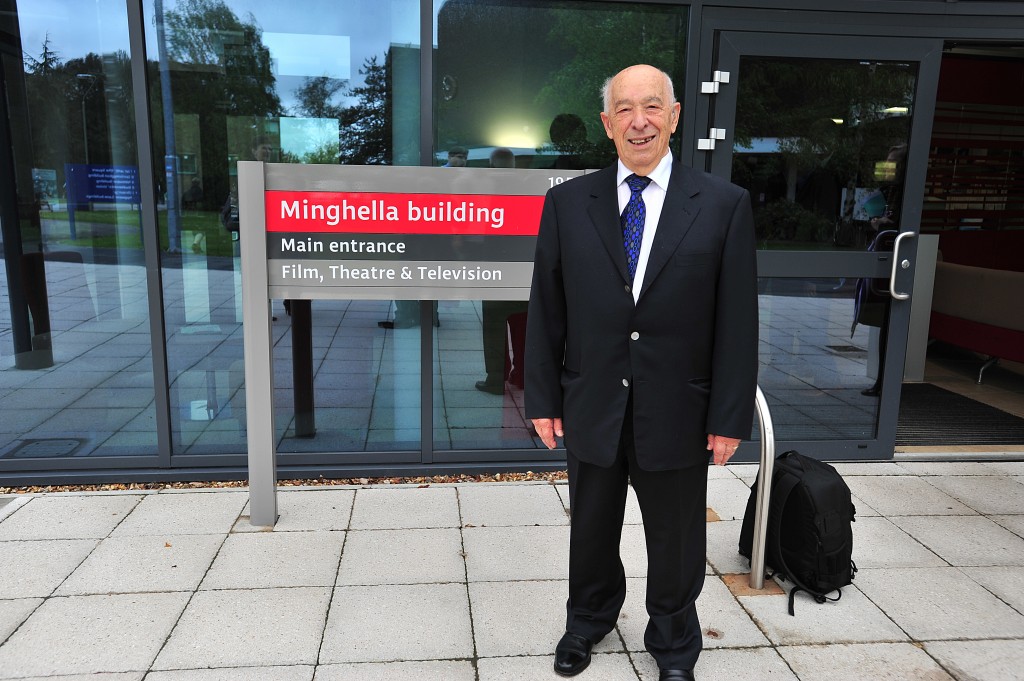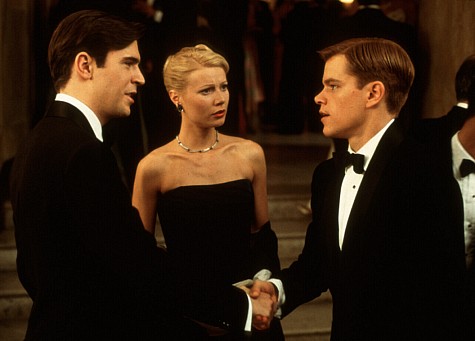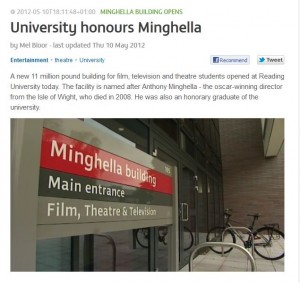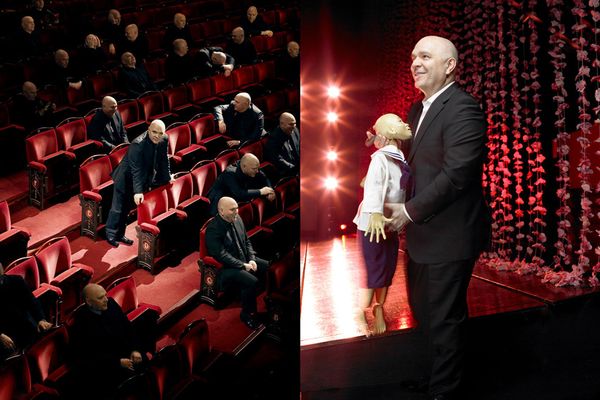It sounds religious, doesn’t it? Maybe it was. Sometimes people come up to me with beatific smiles – and I don’t just mean since he died – and touch me, because they themselves have been touched by him. They sat next to him on a plane, or heard him talk in 1980-something, or saw Truly, Madly, Deeply and felt it was uniquely about them. And they think somehow in touching me, they’ll feel an echo of him, a splinter from the true cross.
I think it was always this way. I don’t think it is a rewriting of history to say that he was always special. Before he revealed himself as an artist, we adored him. Maybe we put it down, my siblings and I, to his being the eldest son in a Catholic, Italian family. He got the star treatment in the family, we thought, because of cultural tradition, rather than merit.
If, for example, he was leaving for university, or better still coming back, our lives would be arranged around those arrivals and departures. Our collective breath was always, somehow, held in his absence. I imagine it drove my sisters mad.
But I think we all knew pretty quickly that this was more than some cultural hangover. He found his niche at Hull University, and began to write plays that were extraordinary in their insight and observation. He wasn’t just the first-born male. He was gifted.
And so it has been ever since – a life spent mesmerising all comers. He used to talk about film directing as hoovering up images. But he hoovered up people, too. Not cynically, but with infectious excitement. He could not pass a migrant office cleaner without discovering that she was also a Brazilian doctor, noted in her home country.
He found the gem inside everyone, and then could not contain his glee. Everywhere he went he acquired family, more folk like us who held their breath in his absence. Sometimes, on a movie, that meant hundreds of people in one sweep, crew members and players all, declaring their undying devotion.
Reflecting on it now, I am beginning to see that his charisma even outshone his talent; and his talent was breathtaking. His specialness predated his artistry, and it’s his personality that everyone is so painfully missing now.
The work remains, and of course we would have loved more of it. But what we’re really missing is him. As we come together to try to fathom this grotesque shock, what’s clear is that everyone felt entitled to a bigger piece of him than they managed to grasp.
For those of us who were waiting for his energy to dissipate, for his career to quieten down, for his attention to revert to us, the understanding that this is never going to happen is too much to bear. I for one would trade his legacy, his works of sheer bloody genius, for one more second with him.
But not to acknowledge his work would be to deny an essential part of him. Not just because the work was so brilliant and so personal, but because he was so devoted to it. He said he couldn’t bear to let a day go by without creating something, and he didn’t.
He was indefatigable. He worked like a dog all day, and when the hurly-burly was done, then he’d write. He was the most gregarious man I’ve ever met – but then also the most able to sustain himself alone, at night, writing. He claimed he was never happier than when he was by himself, working.
I used to feel that his devotion to work was also a function of our upbringing as, essentially, immigrants with something to prove. But I’m wondering now whether that, too, was a simplistic interpretation of what was going on. I remember asking him why he didn’t slow down after The English Patient, enjoy his success. He shook his head: “This is my time.” The truth is that his whole life was “his time”, and his journey was self-fuelling. The more he lived, the more he had to say, the more driven he was to find new ways to articulate himself.
At his daughter’s wedding, a month ago, we watched the young ones dance, their futures all promise ahead of them, and I said we were old now and it was time to withdraw, time for the next generation to step up and call the shots. I didn’t mean it, but he wouldn’t let it pass even as a joke. “No,” he said, “I feel so full of energy. I’ve got so much more to do.”
Those words would seem poignant if you really believed he was gone. But for those of us who loved him, for those of us who are used to holding our breath in his absence, it feels as if there is always the possibility that the phone will ring, and there’ll be that pause, and then the blessed relief as he says (in my case), “Dom, it’s Ant.”





